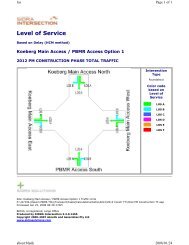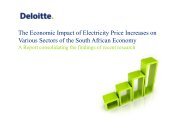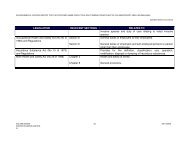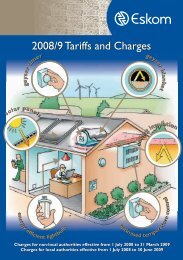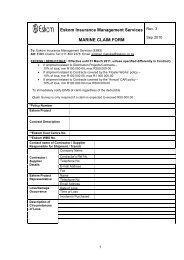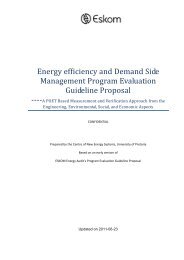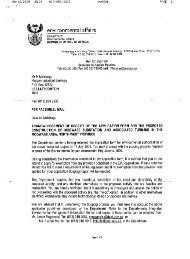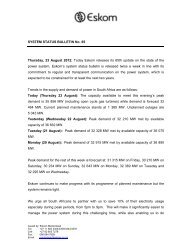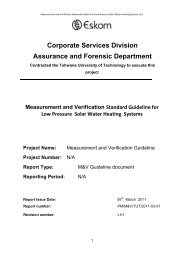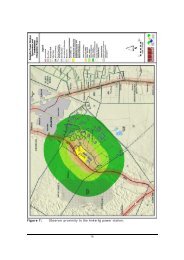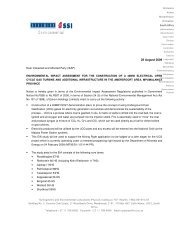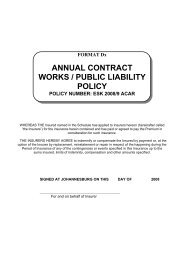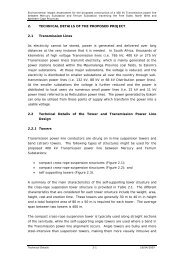Part 1 Revenue Application: Multi-Year Price Determination ... - Eskom
Part 1 Revenue Application: Multi-Year Price Determination ... - Eskom
Part 1 Revenue Application: Multi-Year Price Determination ... - Eskom
You also want an ePaper? Increase the reach of your titles
YUMPU automatically turns print PDFs into web optimized ePapers that Google loves.
Overview of <strong>Multi</strong>-<strong>Year</strong> <strong>Price</strong> <strong>Determination</strong><br />
2013/14–2017/18 (MYPD 3)<br />
Page 82 of 144<br />
The choice, then, is stark. The negative effects of electricity price increases in the short term<br />
must be weighed against the benefits of having an adequate, reliable electricity supply to<br />
enable the economy to expand in the long term. Without an adequate supply of electricity,<br />
South Africa will stagnate. Ultimately, <strong>Eskom</strong>‟s financial sustainability – and its ability to meet<br />
the country‟s electricity needs – is linked to South Africa‟s future.<br />
South Africa‟s electricity prices have already increased significantly off a low base (see<br />
Figure 7). This application sees them increasing further. <strong>Eskom</strong> is acutely sensitive to the<br />
fact that its proposed price increases will have some negative effects on the economy,<br />
particularly on more vulnerable economic sectors and poorer households. <strong>Eskom</strong> strongly<br />
supports the principle of targeted protection for poor households and believes this should be<br />
provided for in the tariff structure, with transparency on the cross-subsidies involved.<br />
Figure 7: Real and nominal electricity prices in South Africa (1974–2011)<br />
<strong>Eskom</strong> would like to emphasise that, if the revenue required for ensuring South Africa‟s<br />
security of electricity supply is not secured through price increases, it will have to come from<br />
another source. One alternative would be for the government to increase its equity<br />
injections, which would in turn require an increase in taxes. <strong>Eskom</strong> has modelled the effect<br />
of an increase in VAT, personal tax or company tax on the South African economic<br />
landscape. The outcome of such taxes was found to be unpalatable for the country‟s<br />
citizens, its businesses, and for <strong>Eskom</strong> itself.




